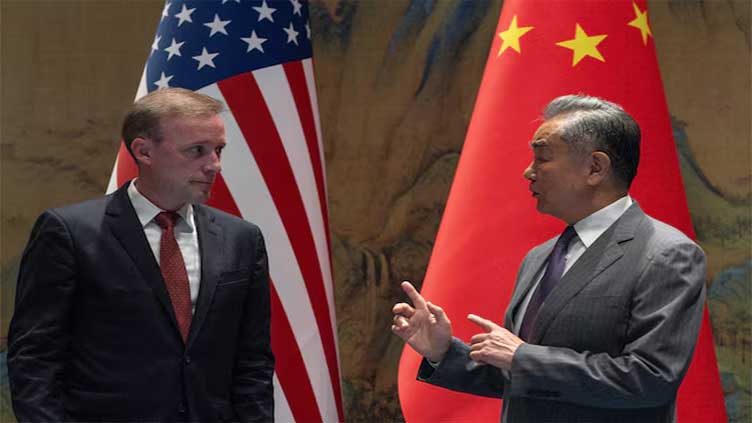China holds 2nd day of talks on Taiwan, fentanyl with top Biden aide

World
US and China representatives are meeting on issues of Middle East, Ukraine, Taiwan, South China Sea
BEIJING (Reuters) – US President Joe Biden's national security adviser Jake Sullivan started his second day of meetings with top Chinese officials in Beijing on Wednesday, aimed at quieting tensions between the two superpowers ahead of the Nov. 5 US election.
Sullivan, China's top diplomat Wang Yi and others are meeting for talks from Tuesday to Thursday as the two countries are at odds over the Middle East and Ukraine, Chinese territorial claims from Taiwan to the South China Sea and trade.
The two continued talks after meetings and a dinner on Tuesday night at a lush resort on the northern outskirts of the Chinese capital.
"Over the past few years, bilateral relations have gone through twists and turns," Wang told reporters on Tuesday.
"We'll delve into a wide range of issues, including issues on which we agree on and those issues on where there are still differences that we need to manage effectively and substantively," said Sullivan.
In the final months of his presidency, Biden has pushed direct diplomacy to influence Chinese President Xi Jinping and keep those tensions at bay; US Vice President Kamala Harris, the Democratic candidate in November's election, would likely pursue a similar strategy.
However many analysts aligned with Republican former President Donald Trump see that approach as too soft, in the face of China's increasingly assertive foreign policy.
Sullivan wants to expand military-to-military talks down to the theatre command level, a step that Washington hopes could prevent conflict in specific areas like the Taiwan strait.
The US also wants China to take more action at home to prevent the development of chemicals that can be made into fentanyl, the leading cause of US drug overdoses, and reach an understanding about safety standards for artificial intelligence.
Beijing plans to express its disapproval over US tariffs on a range of manufactured goods and export controls targeting Chinese chip makers, and talk about its claims of sovereignty over democratically ruled Taiwan.


